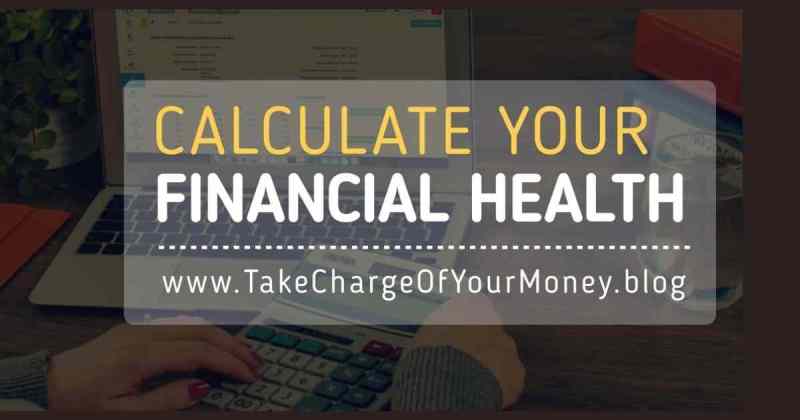We all have a fair idea of what our physical health is like. And of course we can always visit a doctor if something doesn’t feel right or if we actually know that something is wrong. What about your finances though? It’s a little more tricky to know what you financial health is like. What do you base it on and how do you calculate your financial health?
What is Financial Health?
Financial Health is the overall state of your finances. There are many things to consider; your spending and savings habits, your debt situation, credit score and your investments. Think about your day to day money management, your budget (if you have one) and your long term savings goals. Your cashflow and emergency fund and generally how intentional you are regarding your spending. It’s really about you financial habits (good and bad) and how you think about money in all aspects of your life. The amount of money you have certainly plays a role in your overall financial health, but there are many other factors too!
Why do you need to calculate your Financial Health Score?
Calculating a financial health score will give you a benchmark figure to help you know if you’re improving or not over time. Also, when using the Financial Health calculator you’ll get a better understanding of the various factors that affect your overall finances and you’ll be able to learn how to improve. Take the guessing out and just calculate your score. Use this to track how small changes improve your score and ultimately your financial fitness.
Download the Financial Health Calculator
Click the image above or use this link to download the Financial Health Calculator.
Notes about this Financial Health Calculator
- This is a Microsoft Excel spreadsheet and will only work in MS Excel 2007 or later.
- This tool is intended to give you an overall assessment of your finances based on a limited information. This is by no means a financial planning tool and your score should not be used as a de facto score.
- Please chat to a Financial Advisor about your financial situation and plans.
- Use this to calculate your financial health and compare it from time to time.
What does the financial health score mean?
Firstly, your score is a percentage figure (thus a total out of 100) and the higher the score, the better! The score takes all your answers into account and provides you with the overall state of your finances. A high score does not mean that you are rich, but rather that your in a good financial space. A student with a small income and zero debt can end up with a higher score than someone who earns a high salary but who has huge debt and no financial plan.
If you’ve scored 70% or less you should really take a serious look at your finances and learn to understand what it will take to improve your situation! Sometimes drastic measures are needed and other times just a few small habits can change the situation over time.
Unless you win the lottery things will most likely not change after using this calculator, but, if you understand where you’re going wrong you can slowly set your course right. If you manage your money better you will end up with more money, thus looking at your score and ways to improve it will be beneficial in the long run.
How can I improve my financial health score?
Some of the things you can do to improve your score are simple such as creating a personal budget and actually using it! Or reading a book on personal finance or wealth creation. These things may not seem like a big deal at all, but creating good financial habits and actively pursuing knowledge will affect all spheres of your finances! Small things done constantly can make a huge difference.
A big aspect of your score comes from the amount of debt you have! So working towards being debt-free will greatly improve your finances (and your stress levels). Having a long-term plan for retirement is also really important and saving towards emergencies. Think too about your credit card debt (if you have) and the general state of your financial admin (the paper work). Do you even know what accounts you have and how much is in each? Do you submit your taxes on time? Do you know what upcoming payments are due over the next 2 – 3 months?
Being more conscious of how you manage finances every day will have an overall positive affect on your financial health.
Further reading
The free Budgeting course: Budgeting 101
5 Habits to improve your financial health
This list will be updated with all my posts relating to financial health so bookmark this page and subscribe to be sure not to miss anything!



